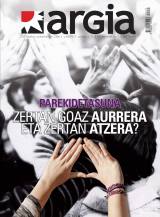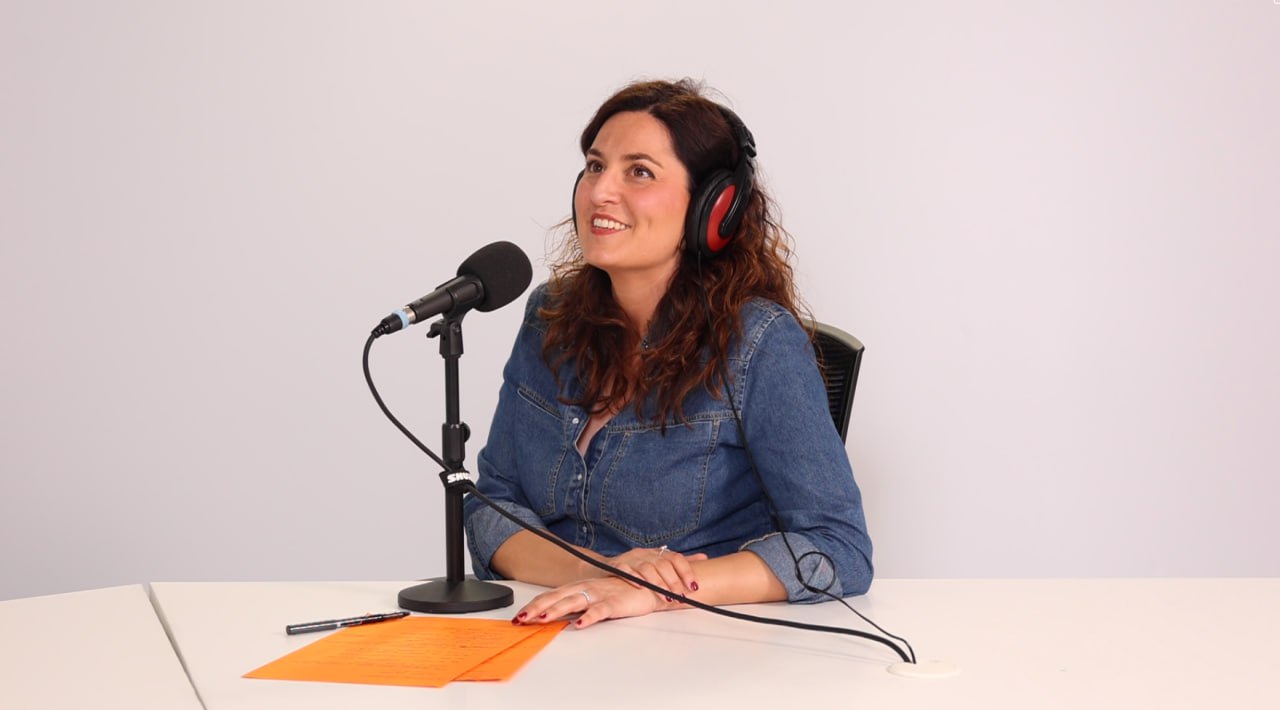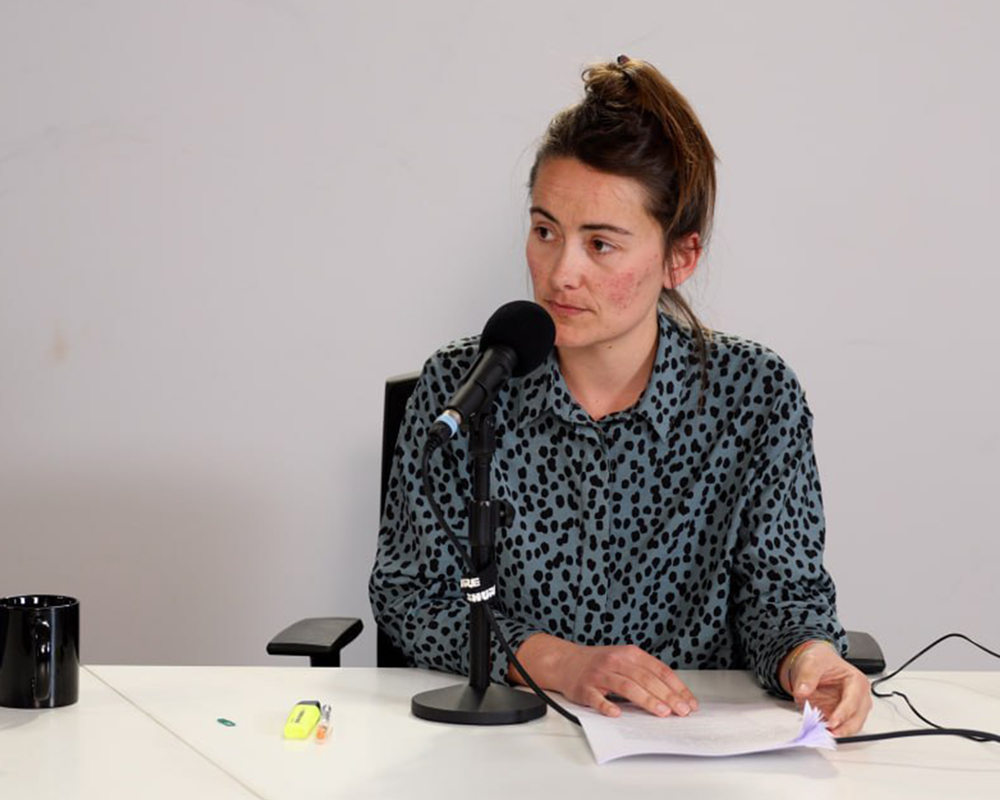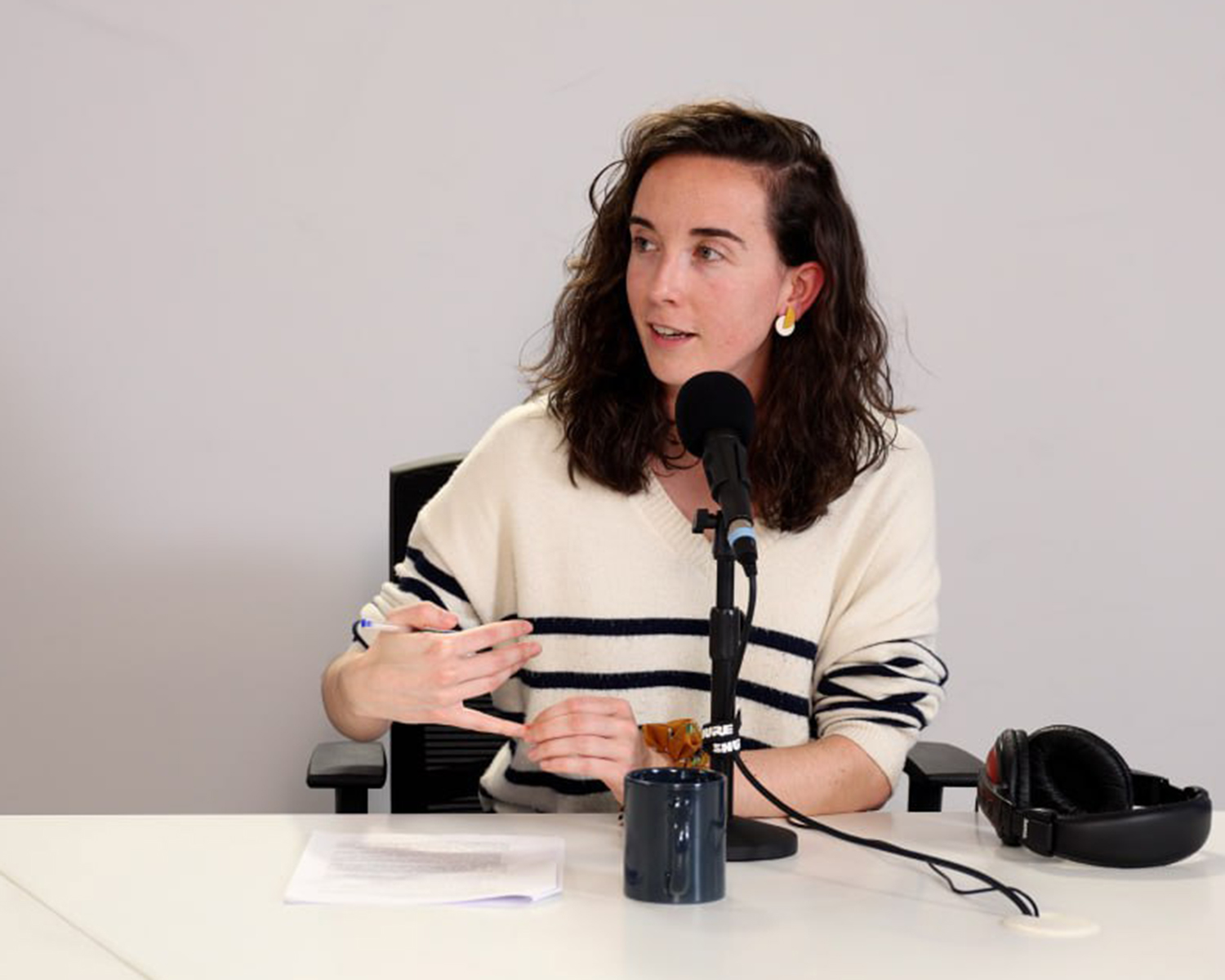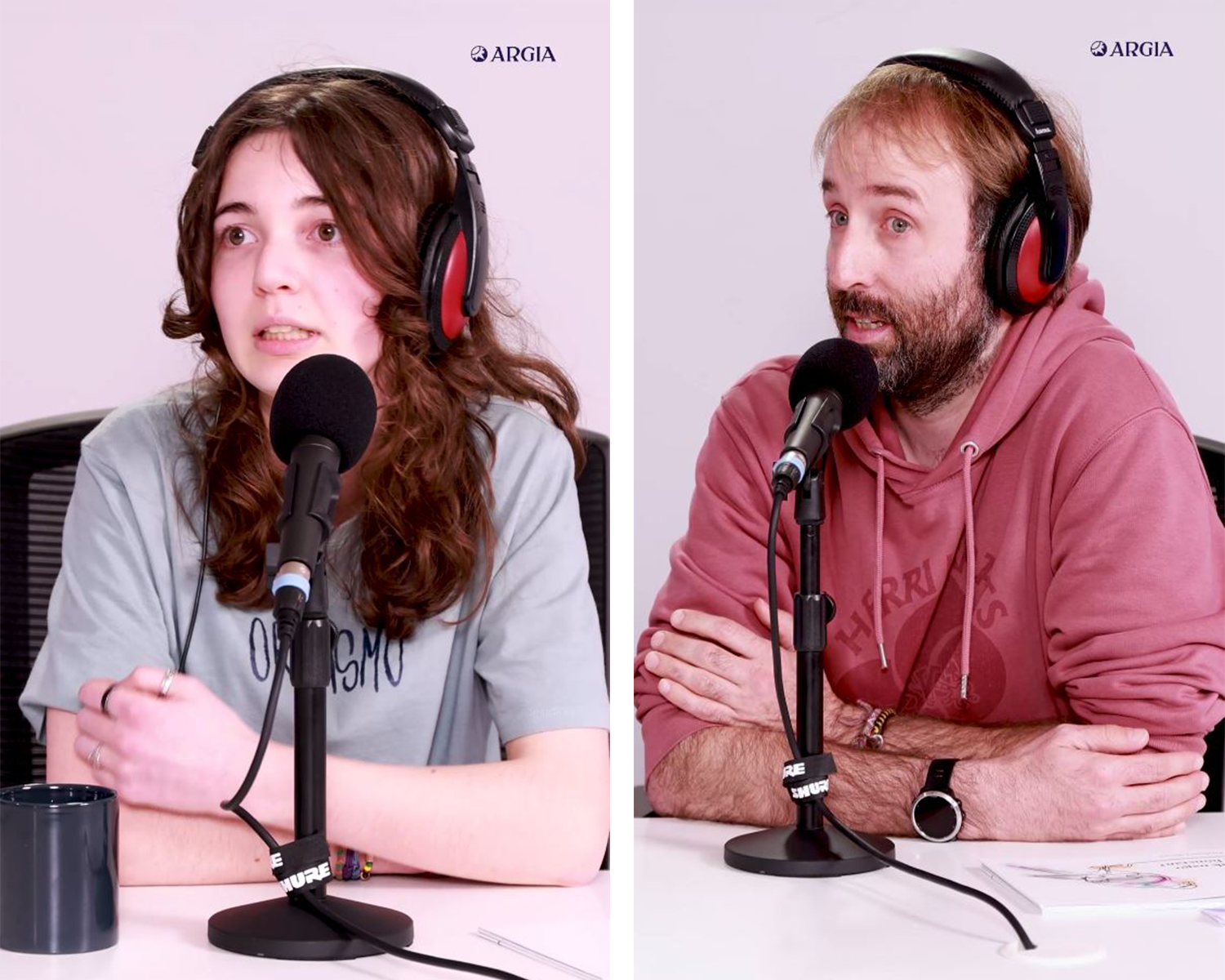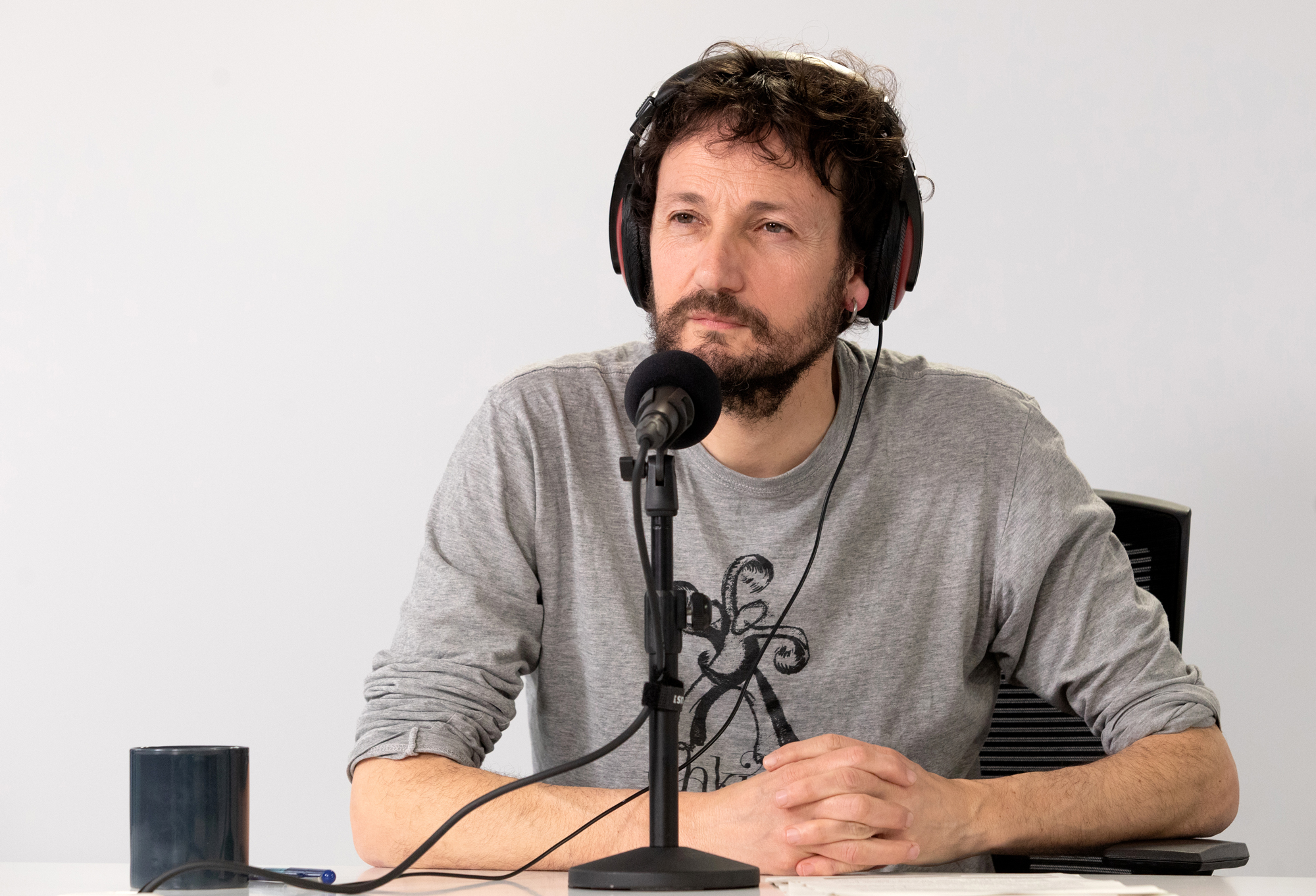"Not everything that is voted on in democracy is worthy"
- Barcelona 1944. PhD in Philosophy. As a young man, he went to Paris. He completed his studies as a Doctor of State in the Sorbonne with a thesis on the Aristotelian order. As a professor at the University of Dijon, the UPV offered him the Chair of Philosophy. He has been a professor at the Universitat Autònoma de Barcelona and is currently emeritus. The UPV/EHU has just appointed Honoris Causa in June this year.
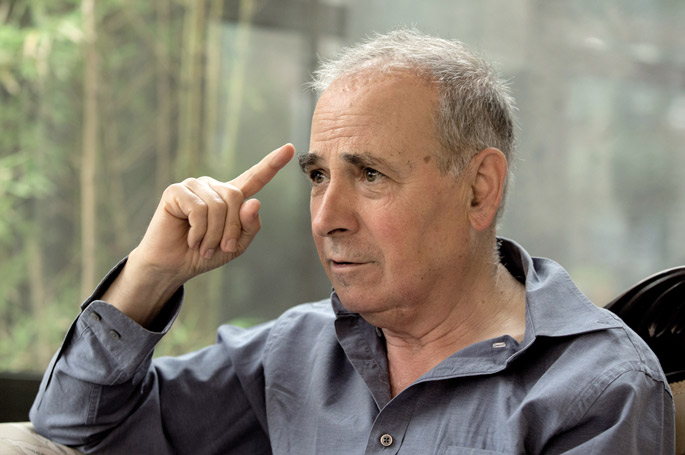
He usually goes to the Donostia-San Sebastian Ontology Congress every two years. This year, for its part, the UPV/EHU has granted him the appointment of Honoris Causa. We talked with the philosopher Víctor Gómez Pin on the occasion of these two events, at the end of June.
What are you working on right now?
I am referring to the conception of nature, the current state of nature, taking into account the conceptions that human beings have developed about it. Although people believe otherwise, our conception of nature is determined by theories. The postulates that determine our nature mark our relationship with nature. Until the advent of quantum mechanics, that's how it has been. The theory is transforming and creating a new one. I have to apply it in my work at the Congress of Anthology.
What is the Ontology Congress about?
The congress is about philosophy, but it also involves physicists and scientists, including the Donostia International Physics Center. We are talking about the natural order. We are moving on to the old problems of the Greeks, in the line of Aristotle, until we reach contemporary thinking today. The problem of human beings has not changed, those who have changed are the data, those who help to resume the problem. This year, the Donostia 2016 coincides with the anniversary of the birth of Aristotle. The XXIV Centenary of the European Cultural Capitality joins the celebration of San Sebastian. At the Ontology Congress we want to raise great problems of philosophical tradition in tribute to Aristotle. The theme is Physis & polis, nature and city. Aristotle, besides thinking about nature and the city, was the first philosopher who studied the term polis and, therefore, the first to analyze politics.
Polisa is in crisis. Politics, come on.
Polisa has never ceased to be in crisis.Evidentemente, politics is in crisis. Crisis is a time of distress, but that is when the concept of emergency prevails. A very appropriate concept. In Greek, the words judgment and crisis are the same, both have the same meaning. Crisis also means what differentiates and decides. In other words, crises can be very productive. For example, I am very optimistic about the Greek crisis. Alexis Tsipras said that “we have been given an ultimatum, and we, for pure dignity, have to give the people the opportunity to decide.” Tsipras launches from dignity. The Greek crisis is fruitful in this respect. There is no politician in Europe who has shown a dignified attitude to the situation in Tsipras. I haven't seen anyone who's shown dignity. In Tsipras' speech, fragments of the Greek tragedy have been heard in recent years. I have not heard such words from a politician for a long time. It's truly beautiful!
Incidentally, the shameful attitude of Rajoy must be denounced. Spain has been the hardest country in its forms with Greece, harder than Germany. Europe’s attitude is not good. It is the first time that we have experienced this situation, the people of Syriza are serious, they have not shrunk, like Papandréu. He wanted to hold a referendum, but it shrunk.
How did you experience the name Honoris Causa granted by the UPV/EHU?
I have a great concept of university, especially public university. If there had been no public university, I would not have learned. When I was young, I went to Paris without work or paperwork. But then you could learn for free in the French republic. I met the great Catalan philosopher Ramón Vals. He proposed to me to organize the school of philosophy in Zorroaga. I had the opportunity to open the section, along with the philosopher Jacques Derridá, among others, which allowed me to become aware of the importance of the university. It's been very productive. To this I must add the opportunity that I had to hold Euskal Herria, very nice. I am very grateful to the public university and very grieved by the ongoing attacks it is suffering today. The public service to be provided to citizens is currently being pursued.
Persecuted by?
The Government of Spain, persecuted by power. They have removed the Philosophy subject from the Second Course subjects. Talking badly about Mr Wert is a topical issue, and the topics lose their strength. So I'm not going to talk to you about Wert. Yes, on the other hand, about the Conseller of Health of Catalonia, Boi Ruiz i García. Look, if you have dared to say that the public authorities have to pay for the studies they have to study at the service of the market, which are necessary to exploit people, and those who want to learn from the Greek world, Aristotle, Homer, Euclid ... I mean, the essence of science, you have to pay out of your pocket. These manifestations are symptoms of barbarism and misery. Philosophy is not a lesson like others, it should be a lesson that concerns us all, addressed to all citizens.
We're going to fall, apparently.
OK ... Philosophy has never been accepted, it has never received the favor, it has always been a contentious issue. Socrates was sentenced to death. Philosophers have always upset established power. But if power is based on unenlightened and prudent citizens, power is not legitimate. If power absorbs the sense of the citizens, even if it is democratic, it is not legitimate. Everything that is voted on in democracy is not worthy. Not all opinions are worth the same, not at all. There is a well-founded opinion shared by the group of reasonable citizens, and there are opinions that are only to the detriment of people.
Do you question today's democracy?
No. I do not question democracy. What Syriza is working on is democracy. In other words, there are a number of international powers that impose the ultimatum on us. And, if it is only with dignity, let us ask those who suffer these measures [the dialogue we did before the consultation in Greece]. At least Tsipras is asking citizens about violence. At least with dignity.
This is Greece, the cradle of our culture.
Greece is the cradle of honest Europe. It is not the only one, let us not forget the legacy of Córdoba Averroes. “The Basques are not Greeks of origin, yes of culture, but not of language. You have to work the language and use it,” a friend told me recently. Because I am partly part of the Basque culture, I say that.
What importance do you attach to identity?
I'm interested in language. The spontaneity of Basque anthropology is evident, but I defend the Basque language in its unique language. For the rest, I do not compare folklore, music or dance with those here and there, because aurresku, sardán and muñeira are the same.
The Basque people are therefore worthy of both worth and joy.
As a young person, I took care of the Basque language, but not for ideological reasons, as many people think. When I arrived here in 1979, the fact that the Basque is still alive seemed a miracle. Apart from political issues, I was drawn to the uniqueness of the language. The Basque was something extraordinary to me: "800 kilometers from Paris? I thought. It is not an Indo-European language. Philosophically, it's very interesting. I have just met former students, three of whom have translated Aristotle into Basque. Imagine that Aristotle's metaphysics are not translated into Catalan. The Basque Country has made a tremendous leap. I'm happy.
At the appointment conference Honoris Causa spoke in Basque for twenty minutes. A good example.
I don't want to be more regious than the king. I have not given him any importance. Everyone has to give an example to himself. To prepare the speech, I was at the Hugoenea in Pasaia. The locals have helped me prepare the speech, as the friends here are mainly Basques.
What do you think of the situation in Catalonia?
The situation bothers me. To clarify: If Catalonia wants to be independent, well. That is not the problem. It is regrettable, however, that the situation has become a serious and major social problem. What happens is not because Madrid is stealing, but because a wrong social policy has been made. I identify with Barcelona. I liked to have Ada Colau as mayor. As in the case of Tsipras, the leap is immense, a leap of dignity. I stress dignity, because in Barcelona a policy has been made against the dignity of citizens: they have promoted the construction of homes for speculative interests, they have demolished the sea port and they have become a place for yachts... Ada Colau is going to try to change that policy, and the simple attempt is a lot, or it's something.
The problem between Catalonia and Spain concerns you.
The situation we live in Catalonia is very painful, unacceptable to people. Between Spain and Catalonia we are consolidating a genuine discontent that must be overcome. For example, García Lorca, a Catalan lover, went to Santiago de Compostela and wrote six poems at the top. He tried to learn Galician and Catalan. I mean, in II. The Government of the Republic tried to avoid this rejection, to build bridges between languages. Now that Catalonia has to be independent? What I mean is that, for the dignity of the Spanish people, the Spanish people cannot accept the current forms of relationship. First, between the two governments of Spain and Catalonia. Just as divorce laws are made in private life, relations between peoples must also be made.
Can the relationship be normalized when it comes to the Podemos Government?
I don't know. Pablo Iglesias... I don't want to name anyone. If We can reach power, the relationship could be redirected in a different way. You can make a divorce law and don't get divorced. But the choice must be open. And if divorce is granted, it is granted with dignity.
Do you care about the politics of Euskal Herria?
I'm not indifferent. In Euskal Herria, the wounds of the past are very open and must be stitched. I'm not a Christian, but I think I'm honored. And the honest man has to have the ability to forget himself. If we do not have the capacity to forget ourselves, there is only resentment in society. I don't want to give lessons to anyone.









